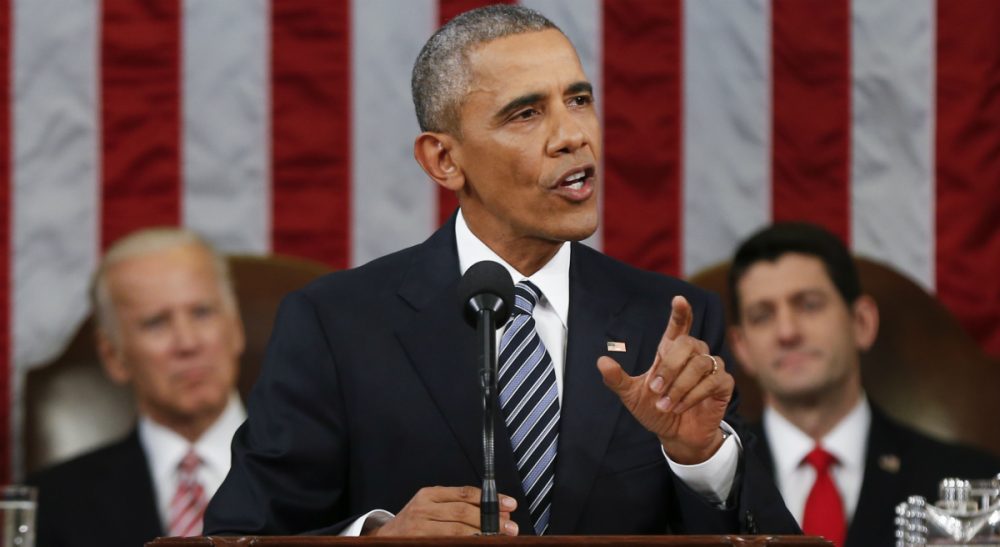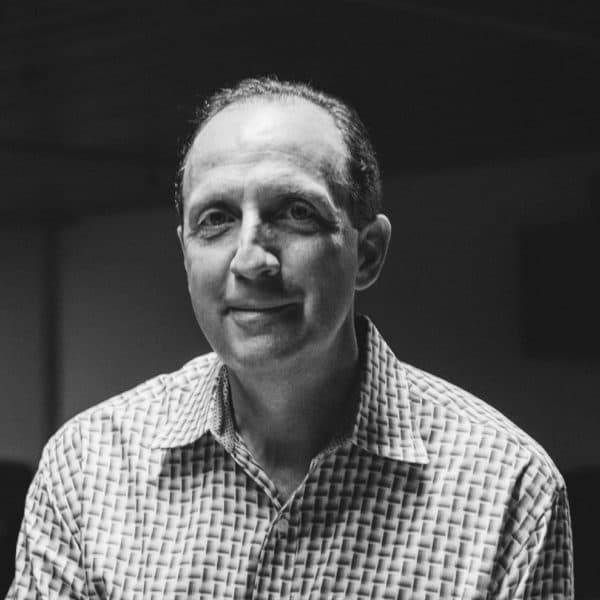Advertisement
Regrets, He's Had A Few: A Look At Obama's Final State Of The Union

President Obama employed his trademark soaring rhetoric Tuesday in his final State of the Union speech, but its effect lacked the usual panache. Stretches of the speech seemed devoid of applause lines, and at times the audience was lackluster and the president a bit flat in his delivery.
There were highlights, no doubt, as when Obama aptly named Vice President Biden to lead a renewed effort to eradicate cancer. This reach-for-the stars optimism about what government can achieve has been a favorite device of Democratic speechwriters going back at least to the space-flight aspirations of the Kennedy Administration, and embodies a can-do attitude the nation seems to be grasping for at present.
While one of Obama’s favorite pastimes has been to blame Congress for D.C. dysfunction, he is often slow to recognize his own role in the poisoned dynamics between the separate but equal branches.
Obama was also particularly strong placing present problems in the Middle East and the challenges of China’s emerging economy into long-term political context, emphasizing the stabilizing leadership role that the U.S. – not Moscow or Beijing – would continue to play in the world.
Yet despite these and some other moments of chest-thumping about the U.S. military response to terrorists (“we have to take them out”), there was almost a wistful feeling overhanging parts of the speech. It didn’t originate so much from the notion that this was Obama’s last appearance in the role, but more so from a sense of opportunities missed.
Obama himself set aside his defiance and confidence for a moment and acknowledged that one of his “few regrets” as president was the reality that partisan rancor is worse now than when he took office nearly eight years ago. While one of Obama’s favorite pastimes has been to blame Congress for D.C. dysfunction, he is often slow to recognize his own role in the poisoned dynamics between the separate but equal branches.
Shortly after his historic election, Obama had an opportunity to bridge the partisanship divide and change the course of the nation. But like his predecessor President George W. Bush after 9/11, Obama fumbled away that chance. He prioritized his vision to change the ideology of the country – as President Reagan had 30 years prior – over the country’s more immediate and pressing needs.
In his relations with Congress, Obama didn’t draw on the well of patience and the long game strategy of rising above conflict that his administration has used effectively in diplomacy with adversaries like Cuba and Iran.
And like clockwork, Obama on Tuesday exhibited the same disjointed approach from past State of the Union speeches by bashing Congress in its own House, repeatedly poking fun at its members, but then lamenting that the future will be brighter for the nation “only if we fix our politics.” It doesn’t work that way, and the president should have figured that out after nearly two terms in office.
Thus, the State of the Union now reveals a vast partisan chasm and the electorate is confronted with two populists – Donald Trump and Bernie Sanders – who have the ear of many angry and disenfranchised Americans.
Every president seeks this type of political immortality, but life – and politics – move on rapidly, especially inside the Beltway.
Obama certainly tried to reach forward to November. In his section on U.S. “leadership” Obama attacked each of the three leading GOP contenders – Trump, Ted Cruz and Marco Rubio – very precisely on the issues, but without using their names. He marched through a checklist of unfinished business to lay out a political plan for the next 10 months and beyond, as a reminder to keep his agenda alive. Every president seeks this type of political immortality, but life – and politics – move on rapidly, especially inside the Beltway.
The State of the Union lent some credence to the criticism that Obama has been a bit tone-deaf at times in his second term. His rosy portrayal of the economy and unqualified claims of success in foreign policy left one wondering how detached and insulated from critical analysis the president may have become over his eight years in office. About two-thirds of likely voters think the nation is on the wrong track, but Obama never acknowledged that he may have had a hand in that dismal perception.
In previous State of the Union speeches, there was a sense of possibility that the Obama presidency could still live up to its perhaps unreasonably high expectations. This time around, however, the sense of inspiration was largely replaced by a sense of imminent transition toward an uncertain political future.

